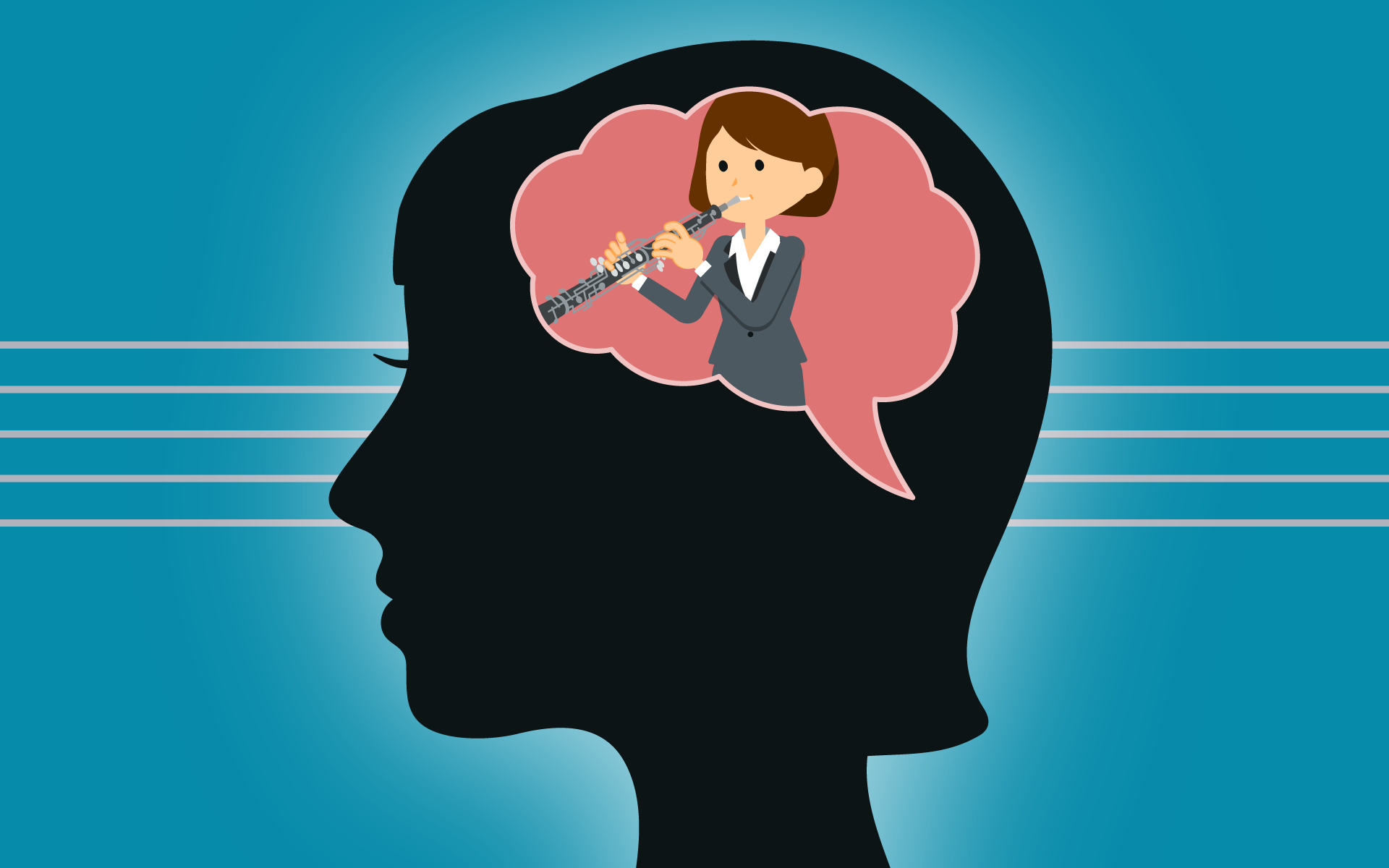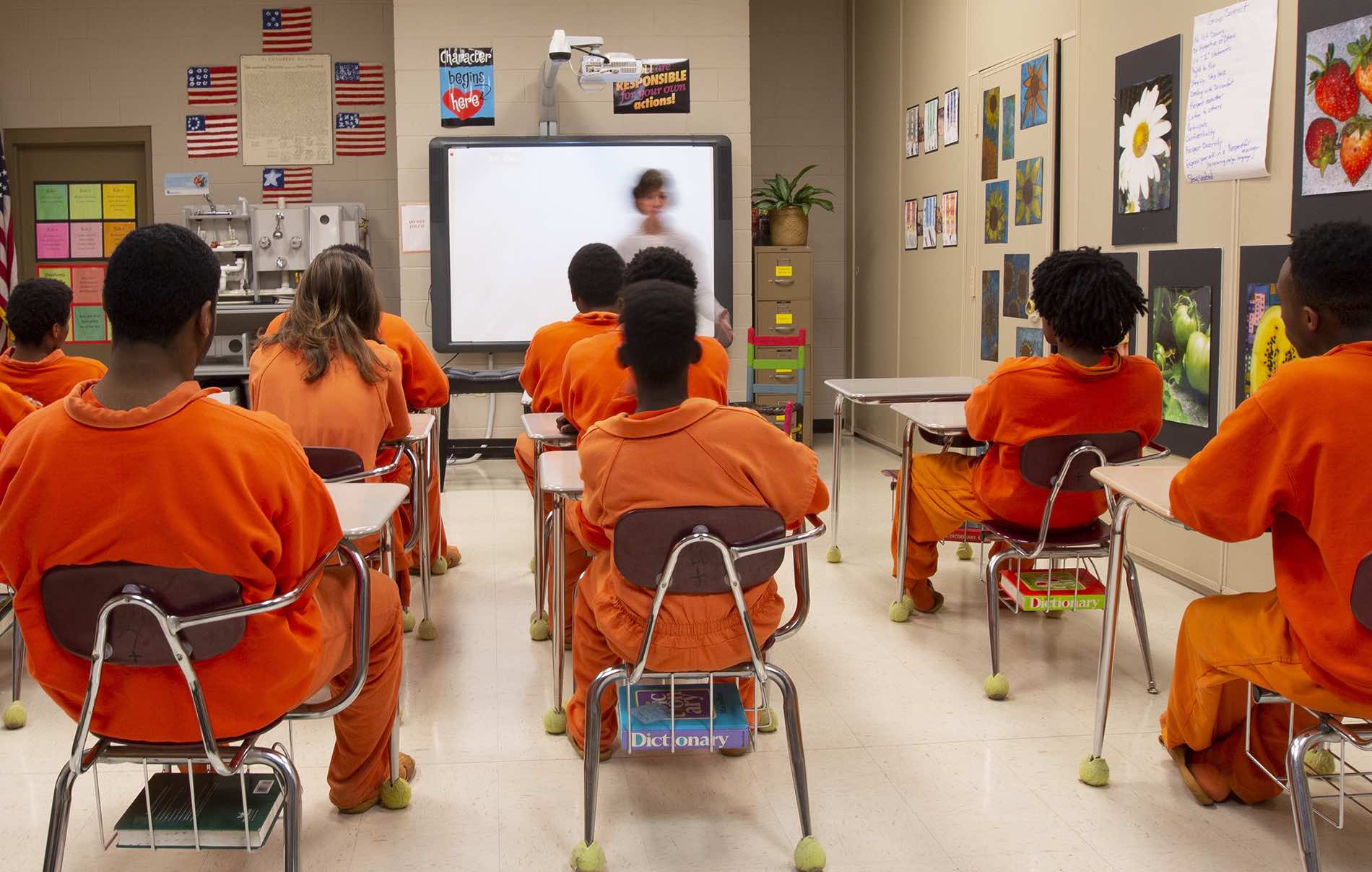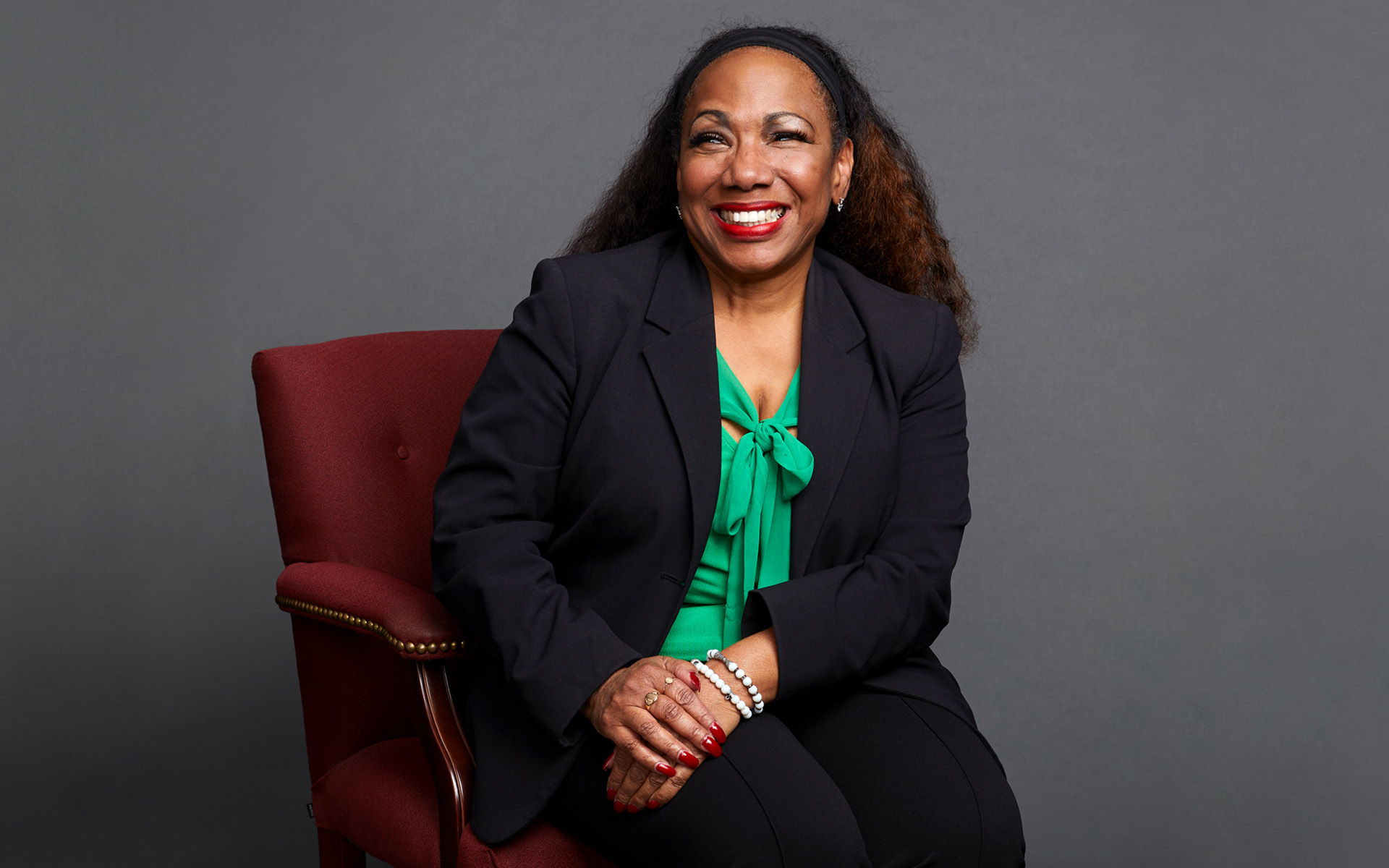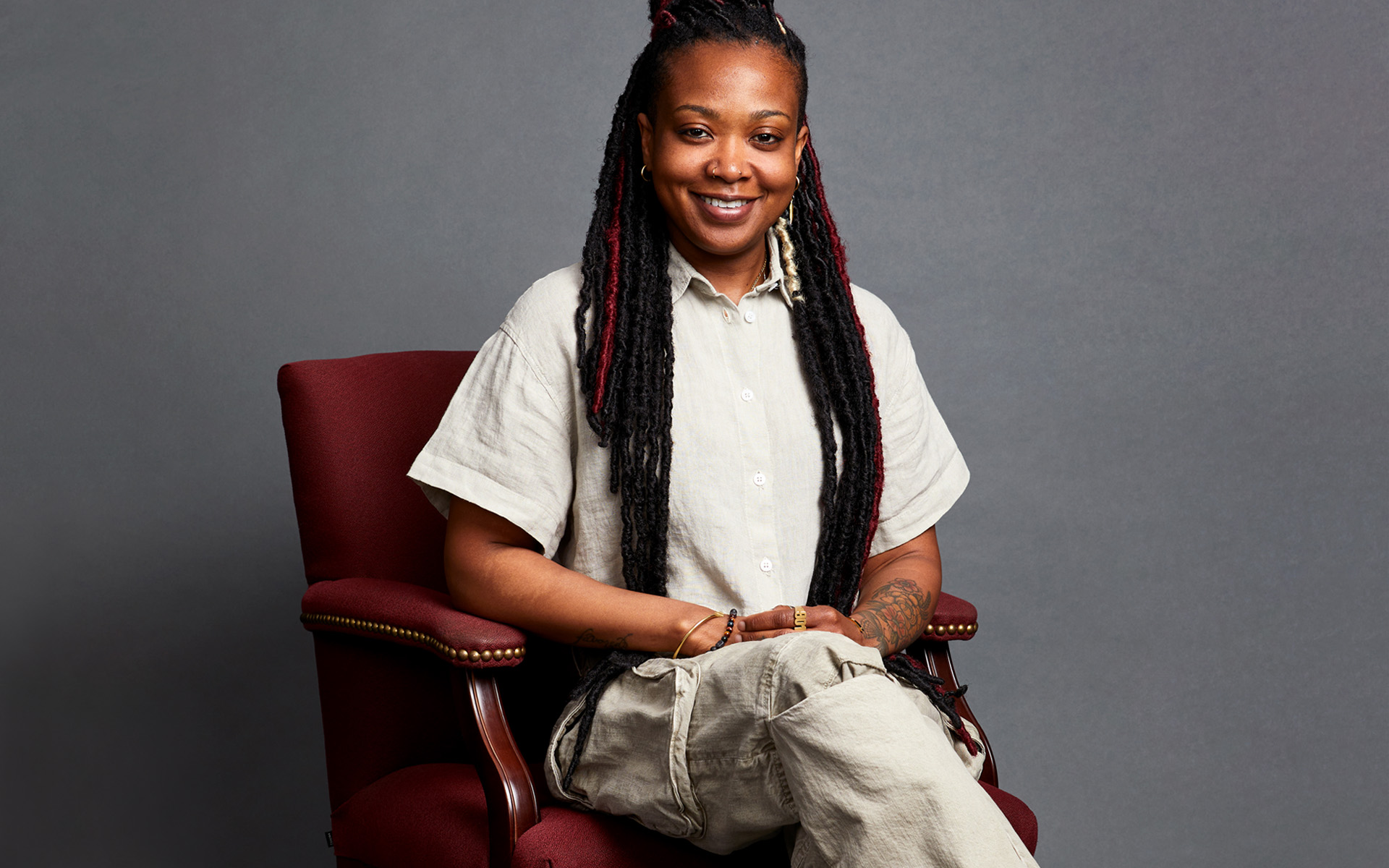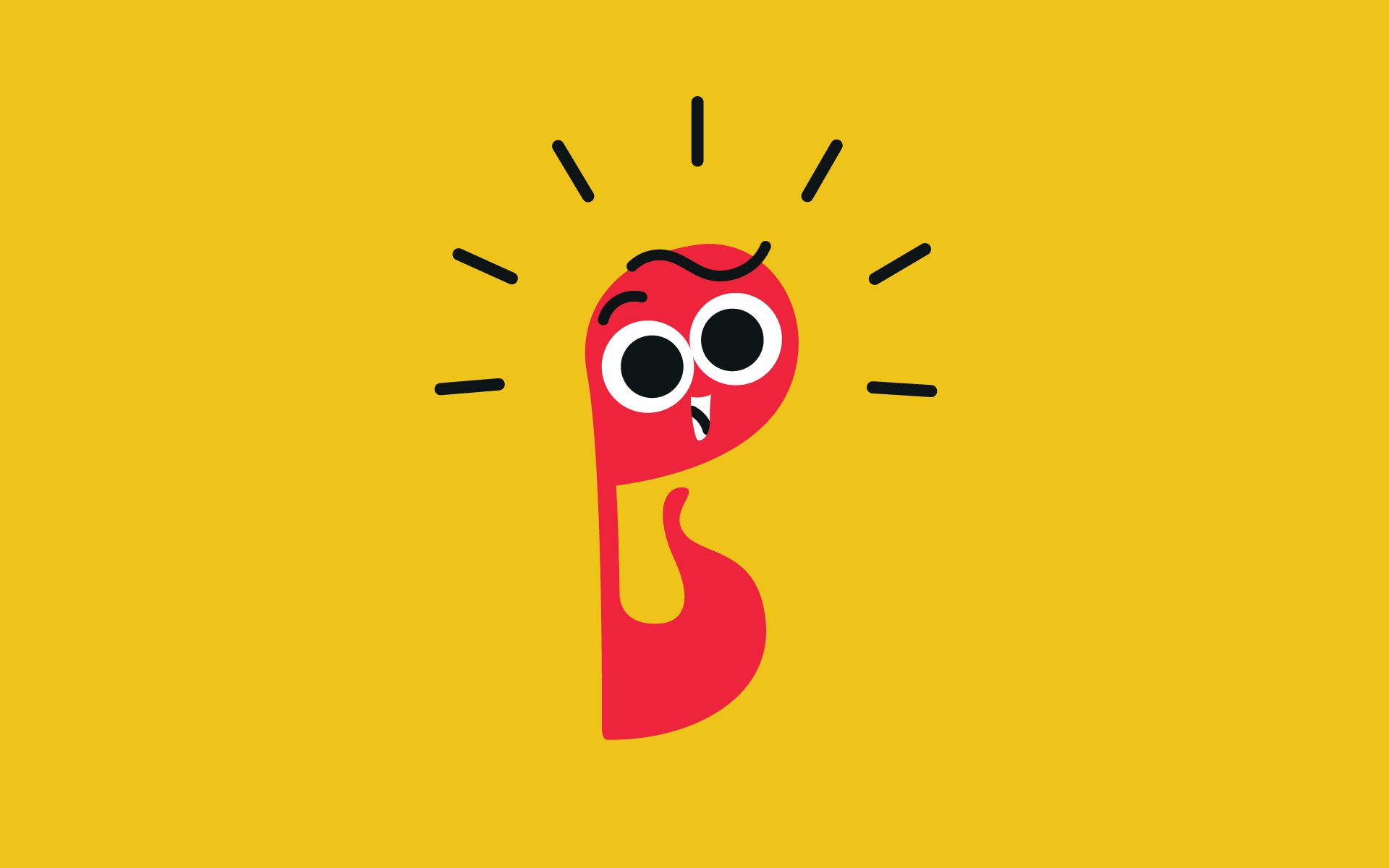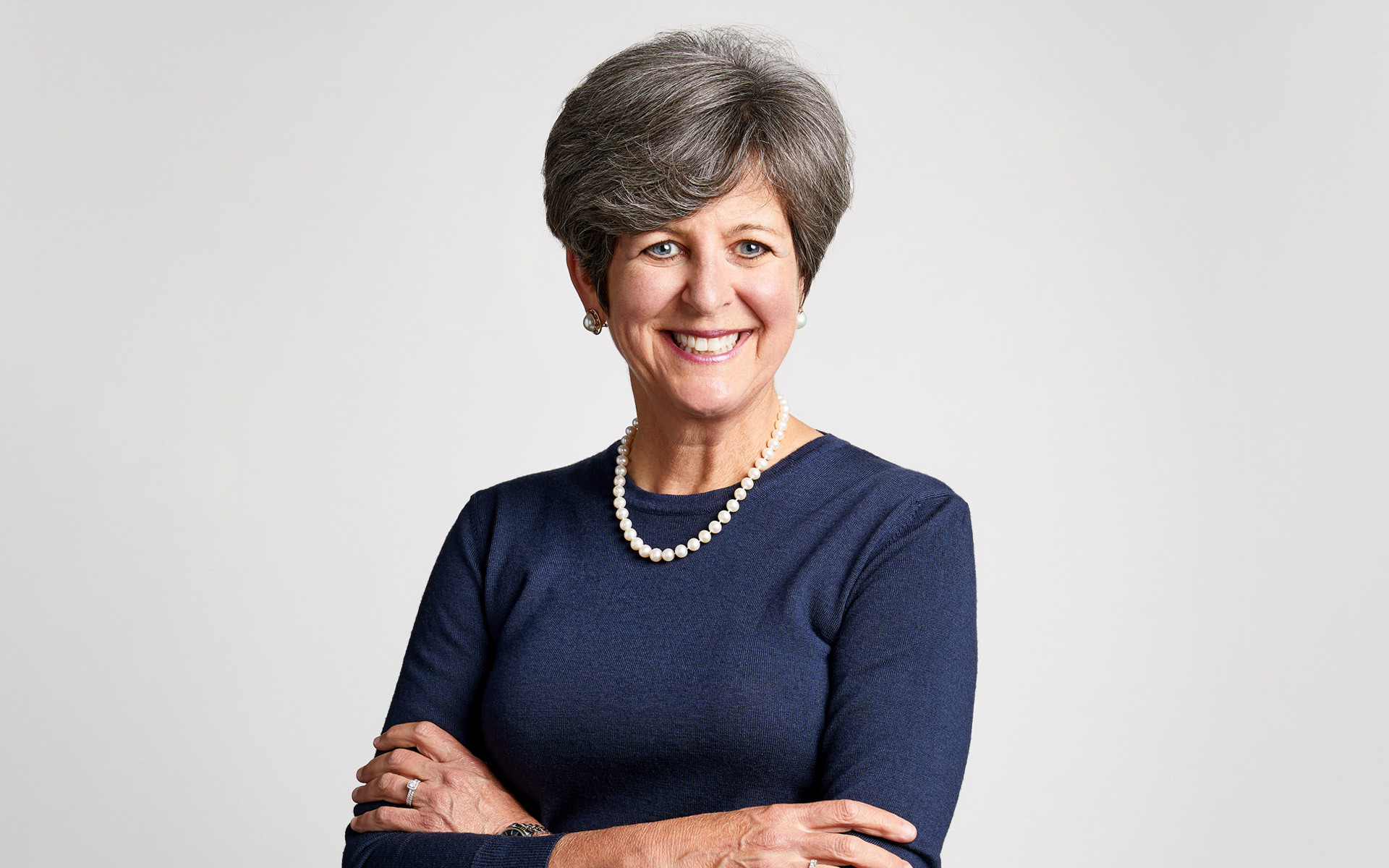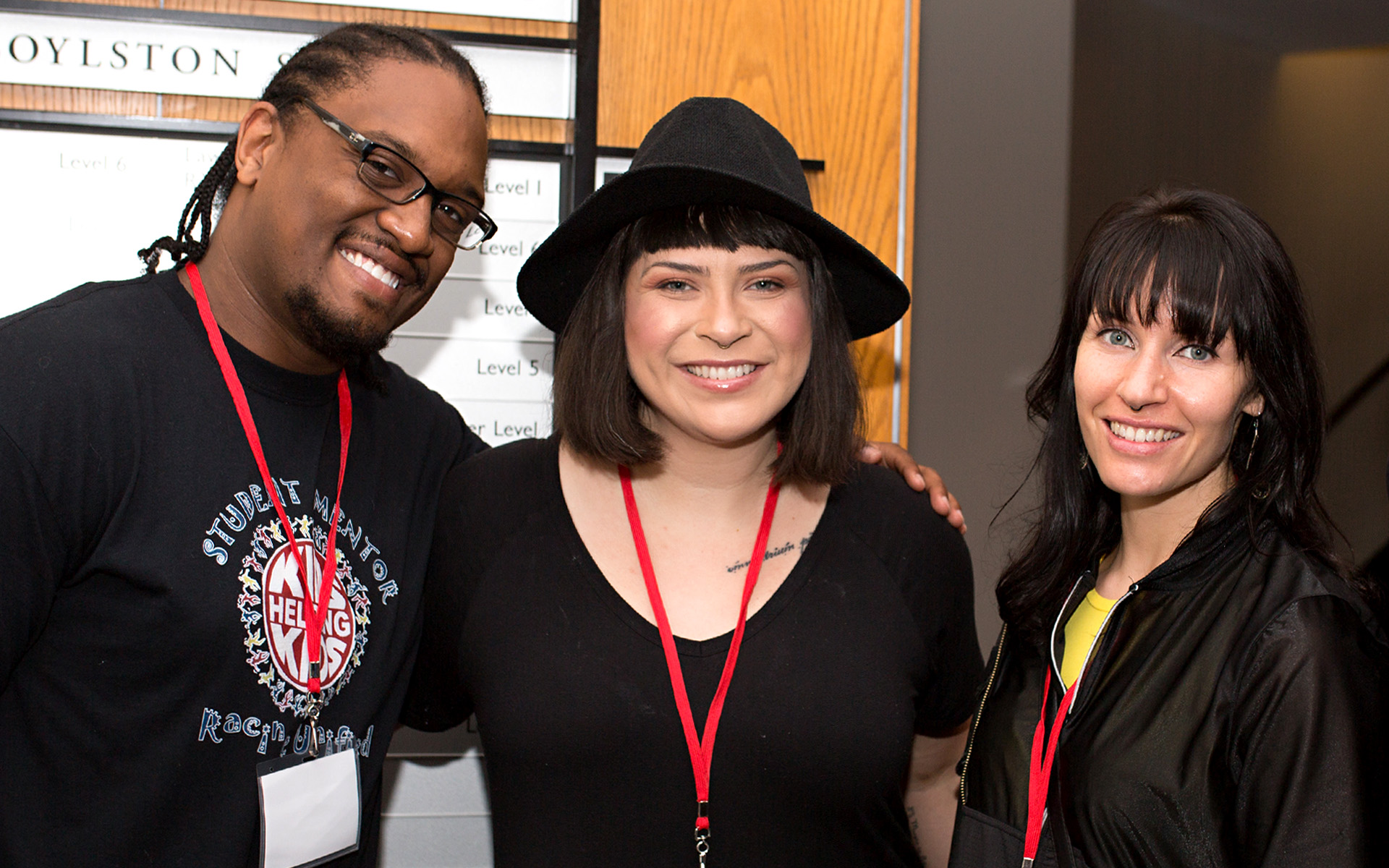Photo by Trevor Norman | @gorillabackpro
Gabrielle Davis is a drummer, a DJ, a new mother, and now a graduate of Berklee Online’s music business program. Though most students start their business endeavors after graduation, Davis started hers in 2014 at the age of 20 when she first enrolled at Berklee Online. She is the founder of Dream League, a nonprofit music mentoring program that serves students in her hometown of Flint, Michigan.
“Dream League was my alternative to teaching music,” says Davis. “I’ve never really enjoyed the classrooms of a music class. They just seemed too formal and too structured. So Dream League is the total opposite of that. All of the lessons are designed as music activities and games. And so the students are learning academic principles like math, writing, and reading through these activities.”
Davis grew up in a musical family. She picked up the drums at age 3, and was playing in her church band by age 12. In her senior year of high school, Davis toured Berklee College of Music in Boston, but due to cost constraints, enrolled in Berklee Online’s undergraduate music business program. Though staying local wasn’t Davis’ plan, it allowed her to be present when her community needed her most.
“I started Dream League as a catalyst for schools that didn’t offer music programs,” says Davis. “So during the summer, I would bridge the gap for the music enrichment that they weren’t receiving during the school year. That was my main focus. Then when the water crisis hit, it was like, ‘Okay, this has really gone from a need to my requirement to give back to my community.’”
In 2016, Flint declared a state of emergency when high levels of lead were detected in the city’s drinking water. This happened as a result of switching the city’s water source from Lake Huron to the Flint River in 2014, which was connected to pipes that were leaching toxic levels of lead. It’s estimated that 140,000 people were exposed to lead from the contaminants in the water. Lead exposure is especially toxic to children, damaging the brain and nervous system. It can slow children’s growth and development, and cause issues with learning, behavior, hearing, and speech. Davis realized that Dream League can help children cope with some of the symptoms of lead contamination by stimulating their brains through music education.
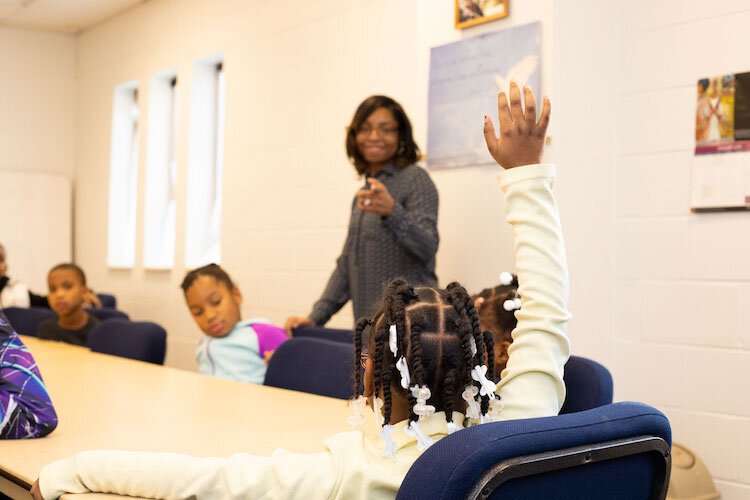
“Statistics say that music helps the brain develop, and so being exposed to lead, especially with kids, is even more vital because their brain is still developing,” says Davis. “With the stimulation of music and how my curriculum ties in academics as well, it expands their learning capacity to not eliminate the mental effects of lead exposure, but it does slow down some of the long term damage that they might face in the classroom later down the line.”
Berklee Music Therapy faculty member Dr. Kathleen Howland, whose work bridges music with neuroscience, says that music education is an excellent option for the children of Flint. Because studies that involve deprivation and toxicity in children are considered “forbidden experiments” in science, there is no official evidence to show that music could slow the effects of lead exposure, but Dr. Howland says that we can look at how music changes the brain and optimizes its functioning.
“For the children of Flint to be engaged in music activities is right on,” she says. “The fact that it could help ameliorate some of the lead poisoning deficits is really intriguing. I don’t know of any other force on the planet that could possibly be effective in building the best frame. A musician’s brain is notably different in both form and structure, and anatomy and physiology from a non-musician’s brain. And it would seem that those advantages would be most helpful in developing children.”
For one, lead exposure can cause impulsivity and even violence, but evidence shows that music positively impacts executive functions such as reasoning, problem-solving, ability to sequence, impulse control, and initiation. On top of executive functions, Howland says that music aids hypertension and helps the brain make distinctions about sound, which combats speech issues caused by lead exposure.
“One of the introductory lessons is teaching them how to read music,” says Davis. “So that’s like reading, where we compare word syllables to use of notation. What they have to do is create a sentence and then write out what the rhythm would be of the actual words, and then boom, they’ve learned how to read music within the 30-minute or hour-long session.”
Since Flint implemented a balanced school calendar, which involves students going to school through the summer with more frequent breaks, Davis has had a difficult time coordinating her summer programs at community centers such as the YMCA and Boys & Girls Clubs. This is on top of the difficulties caused by the pandemic. However, she has plenty on her plate between her DJing business, newborn son, and post-graduation goals, which involve helping more musicians in Flint.
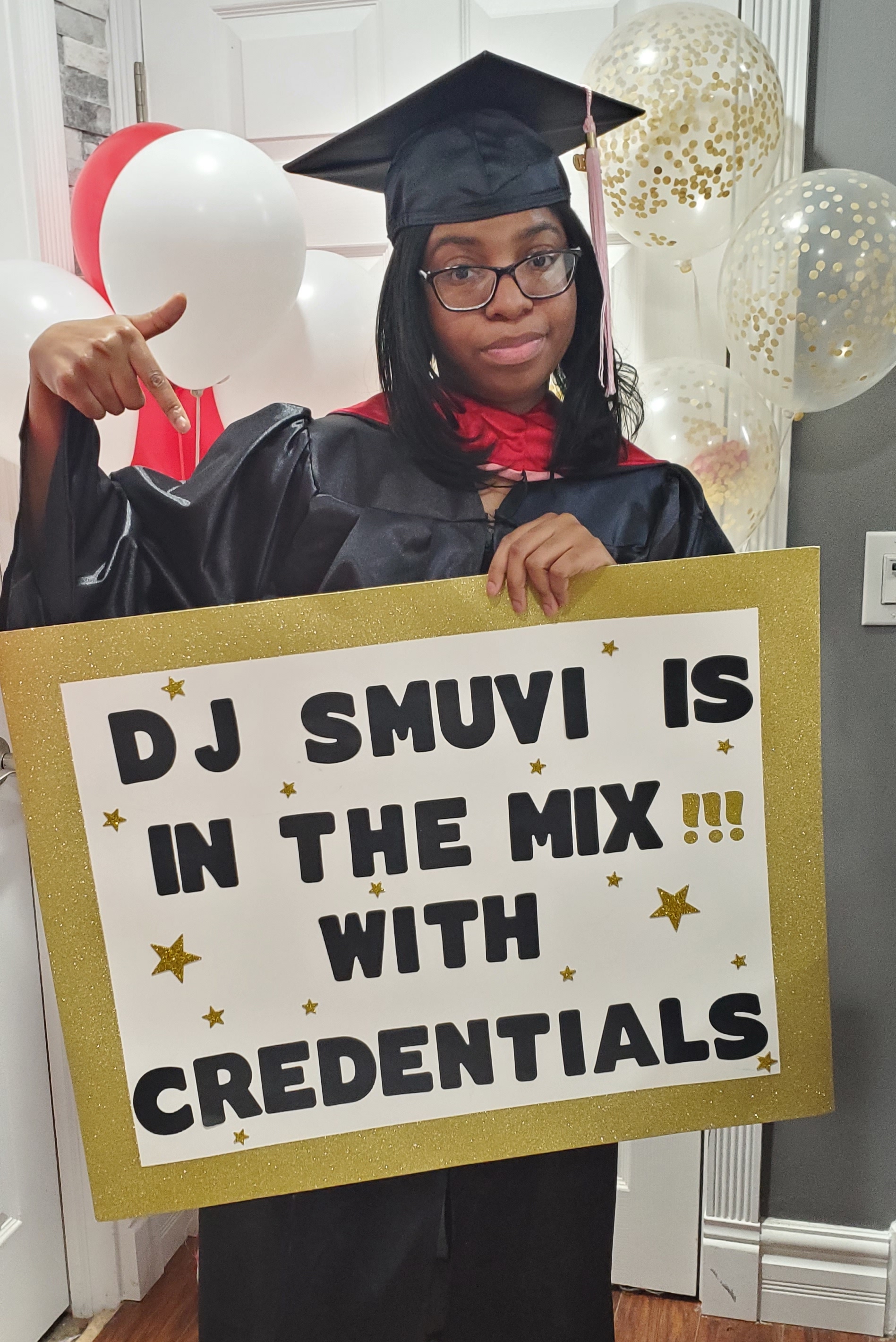
Davis graduated from Berklee Online’s class of 2020 with her bachelor’s degree in music business. 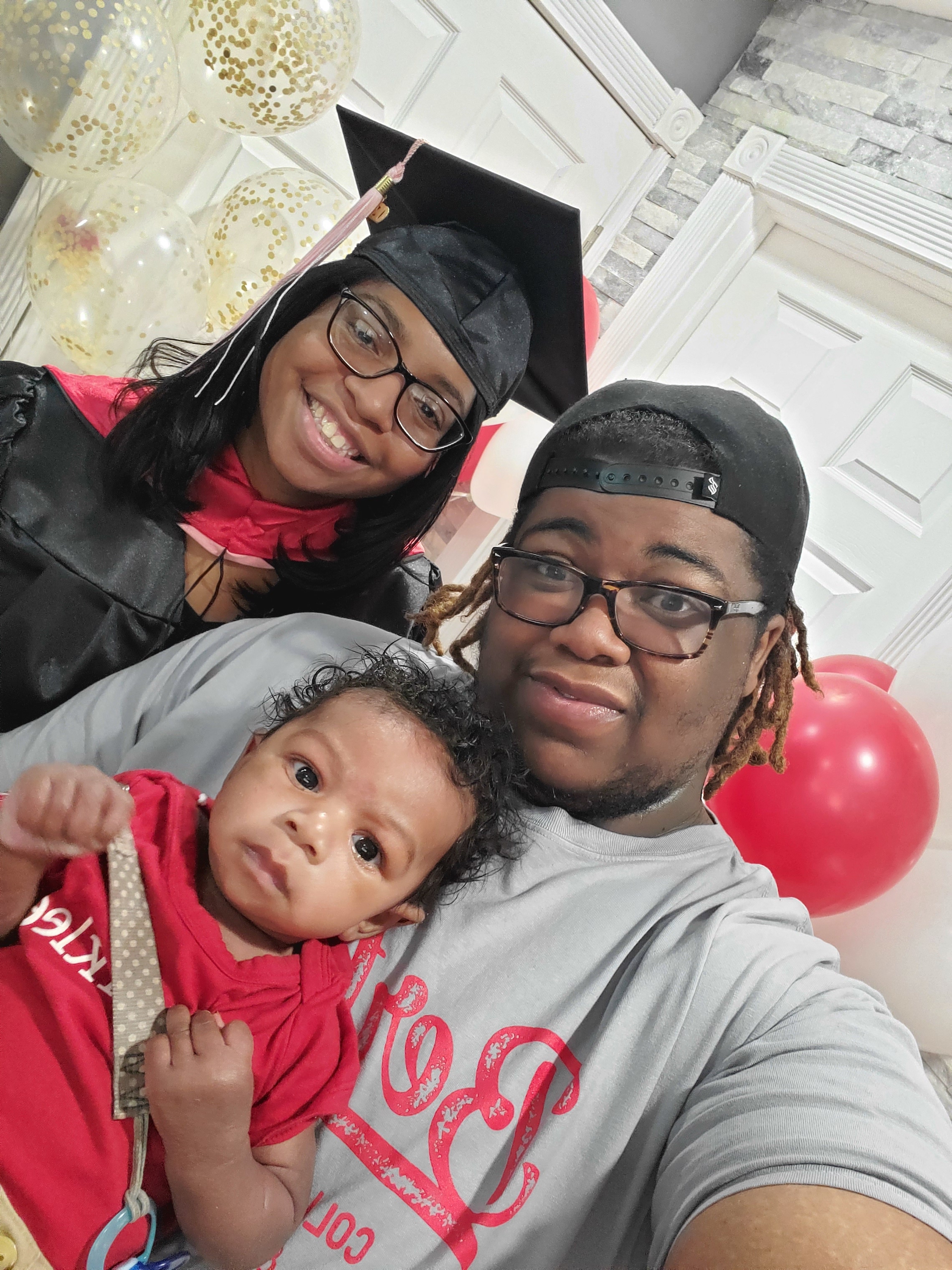
Davis celebrates commencement with her husband Adrian and newborn son Calvyn.
“I’ve been looking to use my music business degree to understand how that relates to my DJ business as well as the music community locally,” says Davis. “There’s a lot of rappers and singers locally and I want to be one of the go-to people for paperwork and outlining music projects for things that they will like to work on and achieve.”
Learn more about Dream League.


